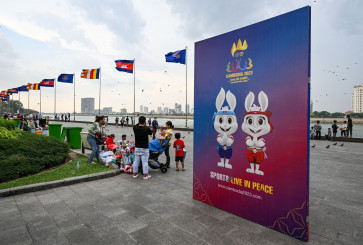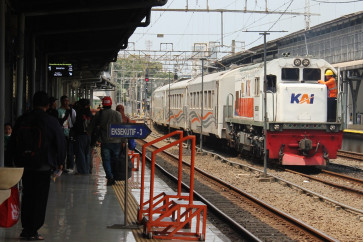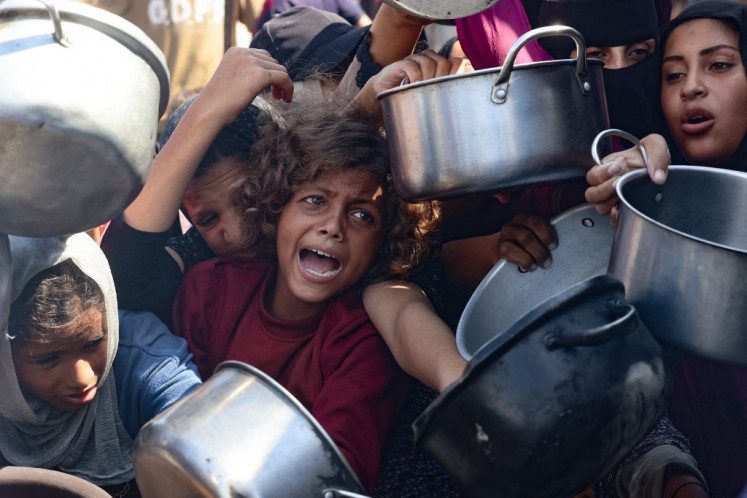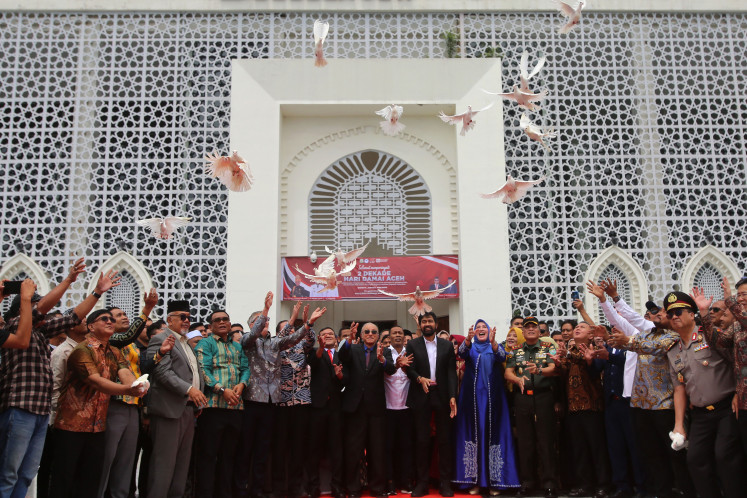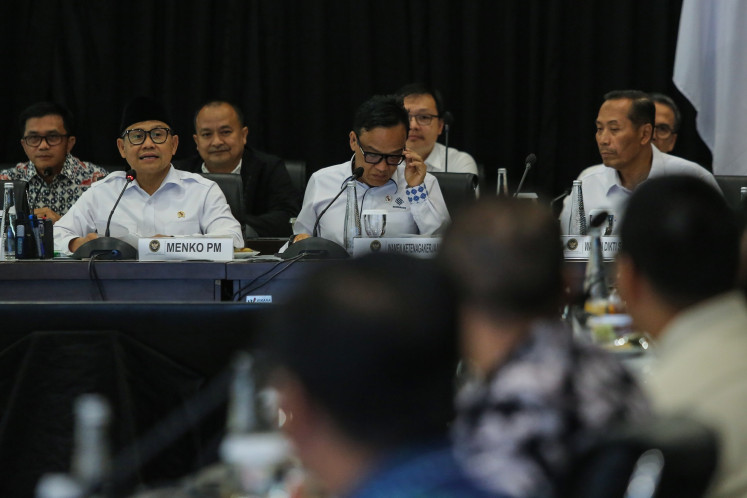Popular Reads
Top Results
Can't find what you're looking for?
View all search resultsPopular Reads
Top Results
Can't find what you're looking for?
View all search resultsCommentary: 'Malari' and the Indonesian student movement
There have been no major political events â specifically, those marked by a power transfer or a consolidation â in Indonesia that have lacked the participation of the young generation, particularly students
Change text size
Gift Premium Articles
to Anyone
T
here have been no major political events ' specifically, those marked by a power transfer or a consolidation ' in Indonesia that have lacked the participation of the young generation, particularly students.
Events surrounding the declaration of independence on Aug. 17, 1945, were led by the country's youth ' mostly by those enrolled in higher education institutions, whose number was very low at the time. The country's founding president Sukarno and vice president Mohammad Hatta were among the vanguard of student figures who were pivotal in the process of establishing an independent and sovereign Indonesia.
More than two decades later, a new generation of university students was involved in massive street protests in September and October 1965 that were part of a complex and crafty movement related to the global Cold War. A pool of leading student activists were key players in the movement that helped bring an end to the Indonesian Communist Party (PKI) and remove Sukarno from power, and at the same time lift then Army general Soeharto to the country's top executive post.
In 1998, or more than three decades later, the next generation of student activists and leaders was at the forefront of a massive national movement, regrettably involving international players and elements, that brought down Soeharto and subsequently prompted reformasi, a growing united reform movement in opposition to the previous decades of government rule tainted with corruption, collusion and nepotism (locally known by the acronym KKN).
Before the fall of Soeharto, however, there was a no-less-important event that has added color to Indonesian history ' the Malari, short for Malapetaka Lima Belas Januari, or January 15 Disaster, marked by unrest and a massive student demonstration on Jan. 15-16, 1974. It was different from the three previously mentioned major political events in that it mainly just affected the capital Jakarta.
The student demonstration, held in conjunction with a state visit by then Japanese prime minister Kakuei Tanaka, was essentially a reaction to rampant corruption, skyrocketing prices of basic commodities and inequality in the country. The protest later turned violent, leaving 11 protesters dead and hundreds of cars and buildings destroyed.
As a result, leading student activists like Hariman Siregar, Sjahrir, Yap Thiam Hien and Rahman Tolleng were arrested and imprisoned.
In the aftermath of the unrest, then president Soeharto, in a move believed to be part of his efforts to consolidate his government, purged officials deemed as dissenters from his administration. The president not only dismissed Gen. Soemitro from his post as chief of the Operational Command for the Restoration of Security and Order (Kopkamtib), but also his two personal assistants ' Ali Moertopo and Soedjono Humardani.
The New Order government of Soeharto then enacted a series of economic reforms meant to improve native Indonesian representation in partnerships with foreign investors. On the political side, however, he regrettably imposed stricter control on anti-government voices and forces, including the media critical of his government with a draconian press law that provided the legal umbrella for his government to revoke the publishing licenses of such outspoken media outlets. The law wasn't nullified until BJ Habibie became president in 1999.
Apart from their genuine motives to combat corruption and protest the high prices of basic commodities and unequal investment opportunity, the Jan. 15, 1974, student protest (Malari) was apparently inspired by the success of the preceding Thai student demonstration less than a year earlier.
The popular uprising of Oct. 14, 1973, which resulted in the end of the ruling Thai military dictatorship and altered the Thai political system, highlighted the growing influence of Thai university students in politics. Its results apparently had convinced the Indonesian students that they could also change government policies in the same way.
The 1974 Malari tragedy and the three game-changing political movements mentioned earlier, though different in scope and players, had many things in common. Apart from being led by university students and forcing the government to change its course, all these movements were bloody, as they each resulted in the deaths ' some in the dozens, others up to hundreds of thousands ' of the protesters themselves, civilians and security forces.
This history offers valuable lessons for us as a nation, such as about the importance of having a peaceful democratic mechanism through which citizens can criticize the government.
Now that fellow ASEAN member Thailand is being engulfed by massive protests challenging its ruling government, the question arises as to whether a similar eruption could happen here during this election year, along the lines of the 1974 student protest.
We should not worry, however, as at least Hariman, the central figure in the 1974 Malari tragedy, has called for a democratic mechanism in observing the upcoming general election. 'So far, there is nothing to worry about regarding the organization of the five-yearly political event [the general election]. We have to respect the ongoing democratization in the country,' Hariman said in a recent interview with The Jakarta Post.
So should all societal elements during this year's election.


